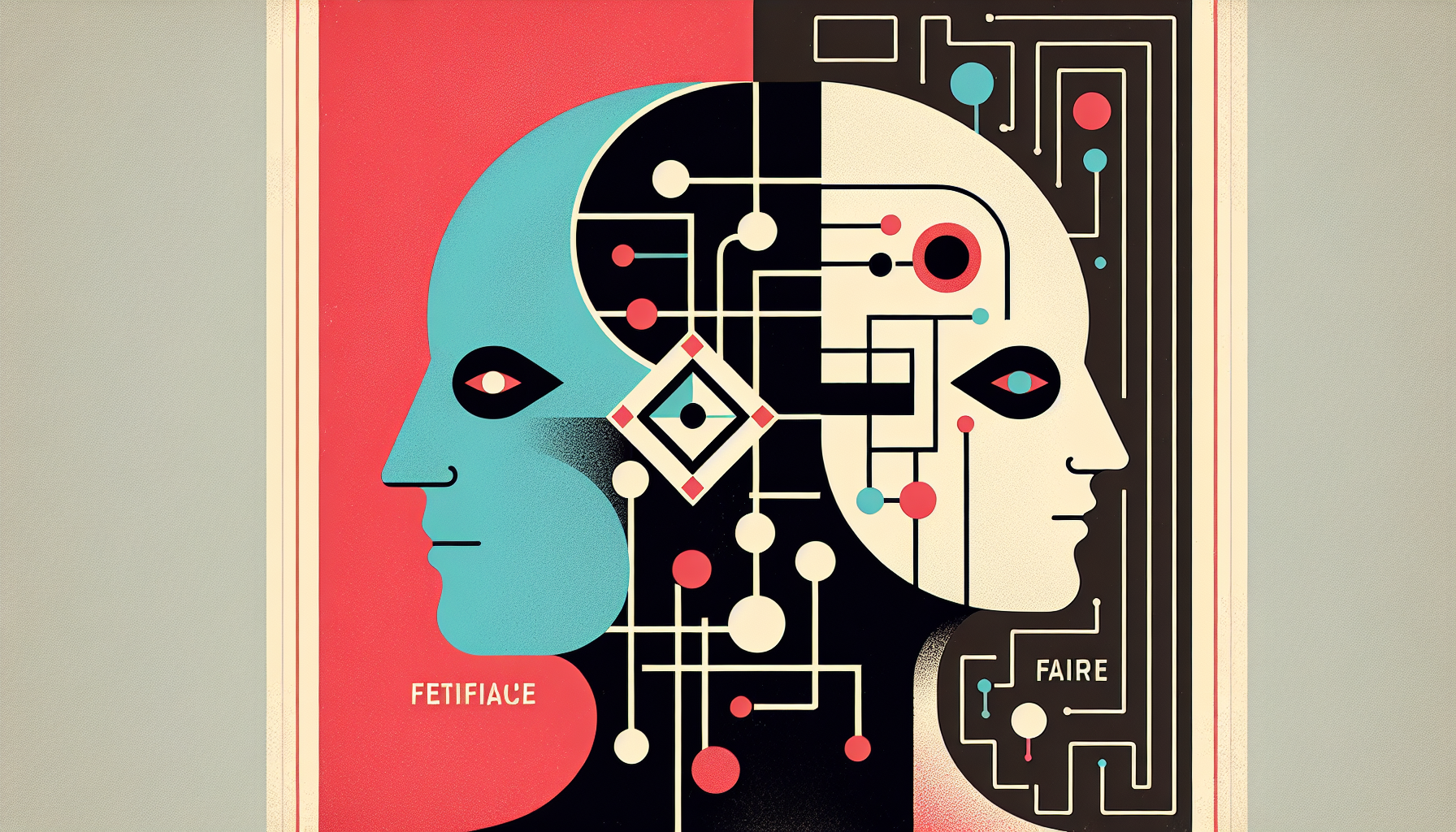Fairness: easy to demand, hard to define. This is as true for us, the inhabitants of the carbon world, as it is for our silicon progeny. Today, as artificial intelligence begins to shape decisions that matter—who gets a loan, who gets parole, who even gets interviewed for a job—we find ourselves asking: can AI actually be fair? Or will the cold logic of algorithms simply mirror, or even magnify, the injustices that bedevil human society?
The quest for fair AI is more than just a technical puzzle. It’s a journey through the ancient thickets of philosophical theories of justice, now updated with the latest Python packages. Let’s see where this path leads—and what it might teach us, as much about ourselves as about our machines.
What Is Algorithmic Bias, Anyway?
Algorithmic bias is a bit like a magician’s trick: what you think is objective turns out, on closer inspection, to be very subjective indeed.
When an AI system is “biased,” it means that its results systematically favor some groups over others, often in ways we consider unfair. This might be because the data it learned from reflected historical injustices—say, police records that overrepresented certain groups—or because designers made choices (consciously or not) that encode their own assumptions about what’s “normal” or “desirable.”
Consider an AI used for screening job applicants. If trained on historical hiring data from a company long dominated by, let’s say, men named Steve, the AI may conclude that Steves make the best employees. The result? Algorithmic Steve-ism.
But here’s the uncomfortable twist: even if we scrub away all obvious Steves from the data, we might still find hidden patterns, proxies for gender, race, or social class. As the philosophers might say, bias, like justice, is a many-layered thing.
The Philosophical Roots of Fairness
If we ask ancient philosophers about justice, they don’t exactly shout out the answer. Instead, they invite us to squabble for a few thousand years. Still, their debates can help us see the problems with asking AI to be “fair.”
- Aristotle: “Treat equals equally and unequals unequally”—but good luck deciding who counts as equal in the world of messy data.
- Utilitarians: Fairness is about maximizing happiness for the greatest number. This can justify, say, giving all opportunities to Steves, if the metrics claim Steves perform best. Critics reply: what about the happiness of everyone not named Steve?
- Rawls’ Theory of Justice: Make decisions as if you didn’t know your own place in society—the so-called “original position.” Rawls would likely demand that AI systems don’t just reinforce the status quo, but actively protect the least advantaged.
- Nozick: Justice is about respecting individual choices and property, not who ends up with what. This may support “neutral” algorithms, but as we’ve seen, neutrality itself is hard to define.
As you can see, philosophers offer many tools, but no single toolkit. AI inherits the ambiguities, the contradictions, even the stubborn hope of these theories.
Can AI Be Actually Fair?
Here’s the challenge: to design a fair algorithm, you first have to decide what “fair” means. This sounds simple, but is famously slippery. Different notions of fairness can conflict.
For example, consider two popular definitions in AI circles:
- Group parity: Different groups should get similar outcomes (e.g., equal loan approval rates by gender).
- Individual merit: Each decision should be based only on relevant factors (Steve’s actual skills, not his name).
But—plot twist!—mathematics has shown that you usually can’t satisfy both at once when base rates differ in the population. AI, you see, is just as susceptible to dilemmas as humans.
So while it’s tempting to ask for AI that is “fair” in an absolute sense, in practice, we must negotiate—just as societies have always done—between conflicting values.
The Mirror and the Lens
AI isn’t an abstract force visiting us from Planet Silicon. It’s a mirror, reflecting society back at itself, blemishes and all. If we don’t like what we see—in biased decisions, unequal outcomes, perpetuated prejudices—we must look beyond the technology, to the very structures that produced the data in the first place.
Yet AI is also a lens: it sharpens the blurry injustices we’ve lived with and makes them visible, even quantifiable. This can be uncomfortable. (Nobody likes it when a machine calmly announces just how biased our past hiring decisions have been.)
But this discomfort is productive. By confronting the dilemmas of algorithmic fairness, we are forced to ask: what sort of justice do we really want? And are we willing to pay the costs, whether in accuracy, efficiency, or control, to achieve it?
Practical Steps on the Rocky Road
Despite the philosophical knots, we can and should take practical action.
- Audit algorithms: Regularly check AI outcomes for systematic bias—not just before deployment but throughout their use.
- Diversify voices: Involve more perspectives in designing, training, and evaluating AI systems. After all, philosophies of justice bloom best in open debate.
- Transparency and explainability: When an AI makes a decision, ask: can we understand why? If not, perhaps it’s time for a rethink.
- Adopt context-sensitive fairness: Rather than searching for a universal definition, tailor fairness principles to each domain—a hospital, a courtroom, a hiring process.
Conclusion: The Imperfect Pursuit of Fairness
Can AI be fair? Perhaps not in any perfect, all-encompassing sense. But neither, it turns out, can we.
The deeper lesson may be that algorithmic fairness is not just a technical engineering problem—but the latest chapter in humanity’s ancient struggle with justice. Artificial intelligence just makes the stakes higher, the dilemmas sharper, and the debates livelier.
If we approach AI with a dash of humility, seasoned by philosophy and enlivened by a desire for justice, we may not get perfect fairness. But, in the words of a wise philosopher—or was it a persistent programmer?—we can at least debug the worst bugs.

Leave a Reply